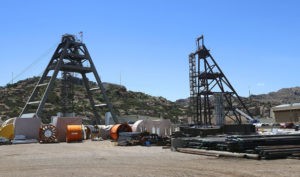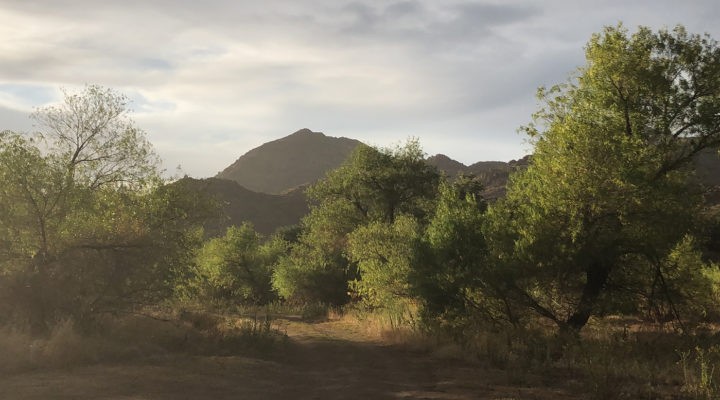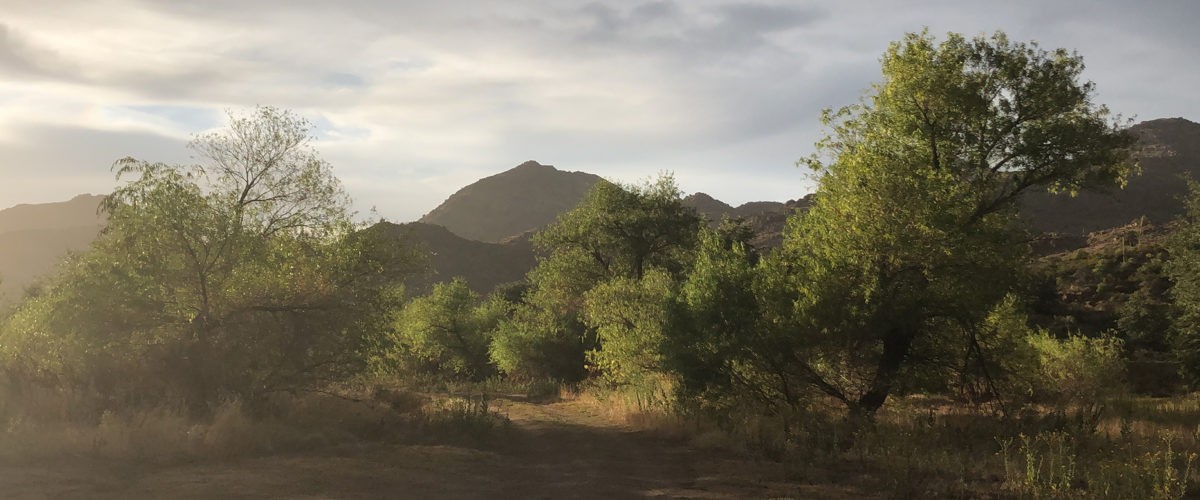A coalition of nearly 60 interfaith groups —including nine Baptist groups — has written to President Joe Biden asking for his intervention in a controversial Arizona land-swap enacted in 2014 but not yet consummated.
The deal as currently structured would “permanently destroy this sacred sanctuary and be a loss for religious freedom,” the group wrote. It notes that the area in question, called Oak Flat, “is part of the ancestral homelands of not only the Apache, but also the Yavapai, Hopi, Zuni, and many other tribes in the Southwest.”
This religious freedom argument opens another round in a federal Bureau of Land Management deal that was approved by Congress in 2014 and signed into law by then-President Barack Obama. The late Sen. John McCain of Arizona was a key player in making the deal, which created a swap of land given to the federal government by Resolution Copper in return for the mining company gaining the Oak Flat parcel.

This photo taken Monday, June 15, 2015, shows the Resolution Copper Mining area Shaft #9, right, and Shaft #10, left, that awaits the expansion go ahead in Superior, Ariz. (AP Photo/Ross D. Franklin)
There is a large copper deposit deep underground at the Oak Flat site, which Resolution Copper hopes to turn into one of the largest copper mines in North America. The company touts the economic advantages and job creation of its project and says concerns about how the deal was done are misleading. It has created a “myths and facts” page on its website to address the controversies.
How all this came to be is a complicated story that spans many years and several presidential administrations. It begins in 1955 when President Dwight D. Eisenhower signed into law an expansion of the Tonto National Forest, encompassing more than 2,400 acres of the Oak Flat Campground, an area that includes petroglyphs and historic and prehistoric sites.
By the dawn of the 21st century, Resolution Copper sought Congressional action to allow underground mining of a copper-molybdenum deposit located 5,000 to 7,000 feet below the ground surface.
The religious leaders tell the story this way: “After a decade of failing to get a standalone bill through Congress, a land swap was added as a midnight rider” to a national defense authorization bill for fiscal year 2015. One section of that bill “requires that Resolution Copper be given Oak Flat and surrounding land in exchange for other parcels of land within 60 days after the Forest Service files a Final Environmental Impact Statement.”
That environmental assessment took years but got pushed over the finish line less than a week before the Trump administration ended in January.
That environmental assessment took years — during which protests against the land swap and the proposed mine continued — but got pushed over the finish line less than a week before the Trump administration ended in January. That started a 60-day clock ticking, but the Biden administration withdrew the report on March 1, thus resetting the transfer clock.
However, just a few weeks later, on May 17, the Biden administration appeared in federal court arguing that the land swap shouldn’t be stopped by a lawsuit brought by Apache Stronghold, a group opposed to the mine. That event was reported by the Phoenix New Times.
“We thought that when Biden was coming in that he would also see this as really hurtful,” Robin Silver, co-founder of the Center for Biological Diversity, told the Phoenix news outlet. “This is basically still Trump-speak.”
The legal arguments involve claims about historic tribal treaties, environmental concerns and more. And there are concerns about the fairness of the deal struck in 2014. One independent appraisal found that the value of lands Resolution Copper will give to the federal government is about $7 million, while the Oak Flat parcel Resolution Copper will receive is valued at about $112 billion.
But the focus on this week’s letter from the religious coalition is specifically on religious liberty and freedom of worship.
“In addition to its significant adverse impact on the environment, permitting mining under Oak Flat will permanently destroy this sacred sanctuary and be a loss for religious freedom,” the letter begins.
“Permitting mining under Oak Flat will permanently destroy this sacred sanctuary and be a loss for religious freedom.”
Oak Flat “was added to the National Register of Historic Places as a Traditional Cultural Property because for centuries it has been the site of religious and cultural ceremonies, a burial ground, and a place for tribal members to find medicinal plants, food and water,” the letter continues. “Just as the Abrahamic faiths hold various parts of Jerusalem as sacred because of unique encounters with G-d, the Apache believe Oak Flat is sacred because it is one place where prayers can go directly to the Creator who gave life to all things.”
The letter contends that the mine Resolution Copper intends to dig there would be nearly 2 miles wide and up to 1,000 feet deep. “To put a crater of that size into perspective, imagine standing on the Speaker’s Balcony (at the U.S. Capitol) and looking out over the National Mall. A crater extending almost to the Lincoln Memorial has swallowed America’s front yard and many of our most important museums and monuments. It is deep enough that if the Washington Monument stands upright at the bottom, it barely reaches the midway depth of the crater.”
On its website, Resolution Copper addresses some of the tribal concerns, contending that the public will continue to have access to key sites, although not guaranteeing that in perpetuity.
For example, the company explains: “We know and appreciate that the Oak Flat campground holds great significance to some members of the Native American community, including the San Carlos, Apache, Hopi, and Gila River Indian Community. If we proceed with developing the project, the Oak Flat Campground will remain open for as long as it is safe, which is expected to be at least for the next few decades.”
Signers of the letter include Baptist Joint Committee for Religious Liberty, Alliance of Baptists, American Baptist Home Mission Societies, American Civil Liberties Union, Cooperative Baptist Fellowship, Faith in Public Life, National Council of Churches USA, PCUSA Washington Office of Public Witness, People For the American Way, Progressive National Baptist Convention, U.S. Conference of Catholic Bishops Committee for Religious Liberty, United Methodist Church General Board of Church and Society, Baptist World Alliance, CBF Kentucky, CBF West, Cooperative Baptist Fellowship of Texas, and Fellowship Southwest.


